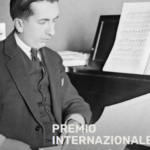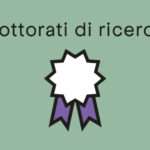09 Dic Memory, Identity and the Remediation of Musical Lives (Call for Papers, LAHP Student-led Interdisciplinary Conference 2020)
DEADLINE EXTENDED
Keynote speaker: Dr Nicolas Pillai (Birmingham City University)
The London Arts and Humanities Partnership is pleased to announce the interdisciplinary student-led conference Memory, Identity and the Remediation of Musical Lives, which will be hosted by King’s College London, Music Department (29-30 May 2020).
Since the early examples of music biographies in the eighteenth century, the practice of narrating the lives of musicians has steadily developed and flourished across different media. Music biopics and TV documentaries on pop stars or composers are among the most successful genres in the contemporary audiovisual panorama. Where does such a long-standing fascination for the life of musicians stem from?
Music pervades people’s lives and is one of their favourite ways to forge their identities. However, it is not only through the act of listening and making music that identities are shaped. Discourses about music are of no less importance, and these often focus on the protagonists (both living and dead, real and imagined) of the musical scene, whose histories are relentlessly retold, monumentalised, turned into powerful lieux de mémoire (P. Nora, 1984-92). The practice of music-life writing, of remembering or witnessing the lives of musicians, is indeed one of the most effective means of negotiating individual and group identities.
In Mediation, Remediation and the Dynamics of Cultural Memory (2009), A. Erll and A. Rigney suggest that memory should be interpreted in dynamic terms, ʻas an ongoing process of remembrance and forgetting in which individuals and groups continue to reconfigure their relationship to the past and hence reposition themselves in relation to established and emergent memory sitesʼ. Such a continuous process of reconfiguration happens through different media, which constantly refashion prior media forms and the contents mediated (this process has famously been called “remediation”by J.D.Bolterand R.Grusin, 1999). If we accept the idea that musicians’ lives are identitarian sites of memory, and that such sites are made up of ʻdifferent media versions of the pastʼ, it becomes necessary to interpret musical-life writing by considering the triangular relationship between memory, identity and remediation. Hence the theme of the proposed conference.
Memory, Identity and the Remediation of Musical Lives seeks to curate an interdisciplinary forum for PhD students and early researchers in the Arts and Humanities and Social Sciences interested in the diachronic and synchronic dynamics of musical-life writing in different media. We encourage the submission of proposals for 20-minute papers that address, but are not necessarily limited to, the following issues:
- genre conventions, distinctive and shared strategies of musical-life writing across different media and times
- premediation / remediation of musical lives and gradual formation of the audience’s identity
- music historiography vs musical-life writing; high-brow vs low-brow practices of remembering
- musical-life writing, authenticity and historical accuracy
- attractions and pitfalls involved in the writing of musical lives
- intersection between specific musical genres, identity and strategies of memory
To submit a paper, please send a presentation title and an abstract of approximately 300 words, along with a short bio and contact details, to musical.lives2020@gmail.com by 15 December 2019. Applicants will be notified of the outcome by the mid of January 2020. We strongly encourage the participation of PhD students and early researchers in film and media studies; performance studies; memory and witness studies; literature; social and cultural history; musicology and ethnomusicology.
Abstracts from PhD and early career researchers are particularly encouraged.
Some small bursaries are available for presenting attendees travelling from outside of London.
Enquiries should be directed to musical.lives2020@gmail.com.









